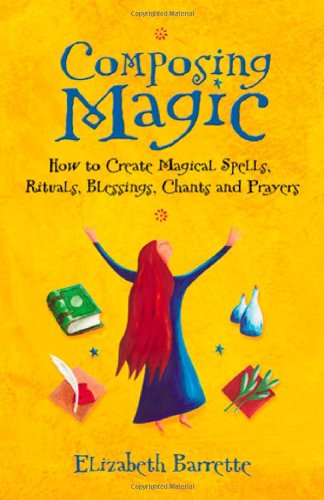http://lis.virginia.gov/cgi-bin/legp604.exe?161+ful+HB389
To which I commented:
http://priscillaking.blogspot.com/2016/02/virginia-house-bill-389-just-right.html
That was my comment, not the official position of this web site. There are homeschoolers and Tea Parties that have in the past distrusted bills like HB 389 due to concern that, if state funds support alternative schooling one year, the state will move to dictate the curriculum content and other school policy matters next year. There are fiscal conservatives and Tea Parties that distrust anything that involves disbursing any state funds. I believe the potential problems with HB 389 (as proposed by Delegate LaRock) could be resolved; not everyone, even in the alternative school movement, agrees.
I knew David Peters well enough to stand by the claim that he would, during his lifetime, have wanted alternative schooling to be equally as available to less privileged children as it now is to our neighbors. I can't say, since the weather and her health were not conducive to meetings or long phone calls, that Grandma Bonnie Peters--his mother--would agree that state funding is the way to do that. This web site has aired points of disagreement between its founding members before, but I do respect her judgment.
So...HB 389 passed the House, but without Delegate Kilgore's vote. Well, his job is to represent the majority of his constituents. I'm not always convinced that they are right, but every year, when I identify points of disagreement with Delegate Kilgore, I have been convinced that the majority of his constituents are being represented. I even respect the man enough to consider the possibility that his judgment reflects his access to political information that I may not have, or that correspondents may not have. (That's why this web site has not aired more of those disagreements.)
And the fiscal conservatives seem to be the ones who threw in a drastic modification to HB 389. Look at it now!
http://lis.virginia.gov/cgi-bin/legp604.exe?161+ful+HB389H1
It's still a good bill, in some ways a better one, and I still support it...but I see one significant potential problem...not with the bill itself, but with the way it might work for one type of student and family.
There is some undeniable benefit in redefining a "qualified student" who can receive funding for an alternative education plan as a student with a "disability." The clear advantage is that this reduces the demand for such funding. Fiscal conservatives should be delighted. Another possible advantage is that it may slow down the retreat from public schools that may or may not be failing, giving these schools a chance to salvage themselves. An additional advantage, that I personally love, is that it creates a counterbalancing incentive for public schools not to declare every child whose parents let school staff get away with it either "attention-deficient" or "on the autistic spectrum."
There are schools, notoriously in Tennessee, where certain venal school employees appear to be using those "disability" labels as if they were no more than synonyms for "extrovert" and "introvert" respectively. They are not. It may soothe the egos of a few parents of genuinely brain-damaged children if their offspring are lumped together with every other child who ever learns something slowly or has a personality conflict with a teacher, but it's not actually helpful to the children.
Recalling the children anonymized here as Blair (the one who really is autistic), Tina (the one who has other perceptual handicaps and has been mislabelled autistic), and Chris (the basically normal one whose emotional growing pains caused different greedheads to mislabel him as both attention-deficient and autistic)...Blair hasn't had a lot of the opportunities and successes that Tina has, and Tina hasn't had a lot of the opportunities and successes that Chris has, and they never will. It's not kind to Blair or to his parents to suggest that Blair is in the same situation, or can benefit from the same learning plan or environment, as Chris. It won't help Chris or Tina find suitable jobs when they grow up, either, to suggest that either of them has ever had much in common with Blair.
Anyone who talks to Chris in a normal way, as distinct from the unique way greedhead school staff talk to children, can communicate with Chris. To communicate with Tina I have to choose different words, speak on different pitches, and repeat a lot, but I can affirm that Tina thinks the way other humans think--at least if they're very young, slow of sight, hard of hearing, sheltered, and slow learners. Communicating with Blair...some people think communicating with genuinely autistic humans is like communicating with cats. They are wrong. Blair's consciousness does not seem to me anything like the cats'. He's more like a possum, or maybe some more exotic animal that's even harder to domesticate.
You'd hire Chris in a minute if you were looking for someone strong, energetic, and intelligent, but not academic. You might hire Tina. You would not hire Blair; at some point we have to face the fact that whatever genuinely autistic people perceive is different enough from what the rest of us perceive that they can't be entrusted with jobs or money.
This brings me back to the memory of David Peters. He was officially classified as "gifted." During the legal battle over homeschooling rights, at some point he was tested and determined to be ready for college-level classes in English and general knowledge, but only for eighth or ninth grade math. (He was in grade seven at the time.) Ooohhh, what could this mean? If you were a friend, parent, or any reasonable observer, it meant a bright boy who'd always learned fast, read a lot of nonfiction and remembered what he'd read, talked with older kids and adults and remembered what he'd heard, but had never gone out of his way to work ahead of grade level in math. If you were the greedhead anti-homeschooling psychologist who talked to David Peters for one hour and then presumed to pronounce on the condition of his brain, it meant some sort of "learning disability" possibly associated with some sort of "neurological abnormality" that might even warrant psychiatric intervention!
That's the sort of student whose parents might be tempted, now, to think that the current form of HB 389 provides an easy solution to problems they may be having with a failing school. Just accept the greedheads' mislabelling of your child, and not only will your problems with the school system be over, but you may even get some extra money out of the deal...right?
Wrong, I say to parents in this situation. If you do accept a greedhead's misdiagnosis and affirm that any problem your child ever had was due to some sort of blurrily defined "disability," you're likely to be signing custody of your child over to social workers...which can be even worse than working with the school system. Your child may still be subjected to genuine brain damage, not to mention torturing pain, from the side effects of unnecessary experimental "medication" that some greedheads have touted as helping attention-deficient children focus and autistic children (theoretically) feel happier. Any disagreement between you and either your child or the social workers may still get your child placed in a foster home...see The Girl with the Dragon Tattoo for (obscene) details about the kind of thing that can and does happen to children with alleged mental "disabilities" in foster homes.
Young working parents may be tempted to accept theoretical brain damage as an explanation, perhaps depend on it as a solution, to almost any problem your child is likely to have. HB 389, if enacted into law, could add to the temptation. Resist. If your child is bored in a slow-paced class (as David Peters was) and, instead of working ahead of grade level in fifth grade math, concentrates on ways to get a tenured but abusive teacher removed from the school system (as David Peters did), your child may be creatively annoying, but s/he is brilliant, not brain-damaged. You need to set your child up for the future success s/he deserves, not for a future as a "disabled" ward of the Welfare State.
David Peters' parents were not wealthy, but they were dedicated enough to yank him out of the public school system the minute brain damage was mentioned. For other children whose families (and/or extended families) are equally dedicated, HB 389 presents no problems. A majority of the fiscal conservatives and Tea Parties I know in Virginia are in this category: if they have school-age children at all, they know whether their children are or are not disabled, and are dealing with their situations as seems appropriate. But I've been seeing some very ugly developments in Tennessee, with lower-income working parents who have eagerly accepted the state's "help" with problem children, and then had their children harmed, rather than helped--not so much by the state policy itself as by individual greedheads here and there.
So what I'm hoping this long post will accomplish is that those who've sent correspondence about HB 389 will follow through, and educate young parents about the real nature of "attention-deficit disorder" and autism as real disabilities that are not to be confused with ordinary personality differences and/or learning problems. Most of the learning problems children have are short-term problems with absorbing information. Some common reasons for these problems have to do with (a) the pace of a child's growth, or (b) lack of a mental "framework" the child will later use to absorb new information, or (c) resentment of being ordered to learn the information, or (d) cognitive dissonance, or (e) emotional reactions to life situations--all of which are vastly more common than real learning disabilities. Most children who aren't learning something one way may benefit either from having the material presented another way, or leaving the material alone for a year or two and learning it later. Relatively few children really have major mental disabilities, and when they do the problem is usually obvious long before anyone tries to teach these children to read or count.
(Can I throw in a link to a book Christian families should read? Sure, why not? Click this image to buy, not even the classic that made John Holt famous, but the updated version that reflects his correspondence with hundreds of successful teachers of problem children--including David Peters.)
It's important to acknowledge, and work with, major disabilities when they exist; expecting a genuinely attention-deficient or autistic child to learn anything in ordinary classes is like expecting someone to walk on a broken leg. But it's equally important not to try to exploit "help" for major disabilities where they do not exist; treating an ordinary mixed-up kid as if s/he were attention-deficient or autistic is like applying a cast to a healthy leg and immobilizing it for months.
Here's the official comment from Virginia State Senator Bill Carrico, District 40:
"
Thank you for your correspondence. It is always helpful to know how citizens of the 40th Senate district feel about legislative matters pending before the general assembly, so I am better able to represent you.
I look forward to supporting HB389 when it comes up for consideration in the Senate. I appreciate you taking the time to share your views on this important issue with me.
Please do not hesitate to contact me in the future about issues important to you.
Again, thank you for your e-mail.
With warm regards, I remain
Sincerely,







